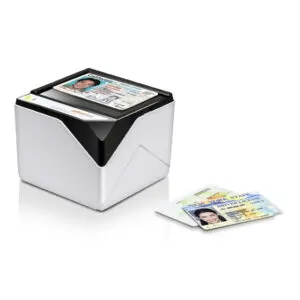The Ultimate Guide to ID Scanners for Hotels: Enhancing Security and Guest Experience
Table of Contents
ToggleIn the dynamic world of hotel management, the integration of technology for security and efficiency is a top priority. ID scanners for hotels stand at the forefront of this integration, offering a blend of security, compliance, and enhanced guest experience. This guide delves deeper into the world of hospitality ID scanners, providing not only a comprehensive overview but also practical examples, visual elements, and a step-by-step implementation checklist.
Comprehensive Benefits of Hotel ID Scanners
ID scanners in hotels serve multiple purposes, from enhancing security to streamlining administrative processes. Here are specific examples of how these devices can be transformative:
- Security Enhancement: By accurately verifying guest identities, ID scanners prevent unauthorized access, ensuring a secure environment for both guests and staff.
- Streamlined Check-In: Automating the data entry process, these scanners reduce wait times and errors, leading to a smoother, more efficient check-in experience.
- Legal Compliance: With precise record-keeping, hotels can easily comply with local and international regulations regarding guest information.
Real-World Applications:
To illustrate the practical application of ID scanners, consider the following scenarios:
Scenario 1: Streamlining Busy Check-In Periods
During peak times, ID scanners significantly expedite the check-in process. By quickly scanning and verifying guest information, these scanners reduce queues and wait times, directly impacting guest satisfaction. This efficiency not only improves the guest’s first impression but also allows staff to focus more on guest interaction and less on manual data entry.
Scenario 2: Managing Guests with Payment Issues
ID scanners play a vital role in identifying guests who have previously been flagged for non-payment or chargeback issues. When a guest’s ID is scanned, the system can alert staff if there are any outstanding payment concerns associated with that guest. This feature enables the hotel to proactively manage potential financial risks.
Scenario 3: Protecting Property from Problematic Guests
Another crucial function of ID scanners is to flag guests who have caused disruptions or damages during previous stays. This alert system helps the hotel take necessary precautions to prevent future incidents, safeguarding the property and ensuring a pleasant experience for other guests. It also aids in mitigating negative reviews that can arise from such disruptions.
Scenario 4: Correcting Misinformation for Enhanced Service
A common issue in hotel management is dealing with incorrectly spelled names or other guest information. ID scanners help rectify this by accurately capturing the guest’s details directly from their ID. This accuracy saves time and prevents potential headaches for both the guest and the hotel staff, ensuring a smoother interaction and record-keeping process.
Enhancing Guest Experience with Secure Data Management
The integration of data encryption and cloud management in ID scanners not only fortifies the security aspect but also enhances the guest experience:
- Quick and Secure Check-In: Guests appreciate a swift check-in process that also assures them their personal information is handled securely.
- Trust and Reputation: Hotels that employ these advanced security measures are often viewed as more trustworthy, directly impacting their reputation and guest loyalty.
Actionable Steps for Implementing ID Scanners in Hotels
 For hotels looking to implement ID scanners, here is a checklist to ensure a smooth integration:
For hotels looking to implement ID scanners, here is a checklist to ensure a smooth integration:
- Assess Your Needs: Determine the specific requirements of your hotel for an ID scanner.
- Select the Right Model: Choose a scanner that integrates well with your existing systems and meets your operational needs.
- Train Your Staff: Ensure that your team is well-trained in using the scanner and understanding its benefits.
- Regular Software Updates: Keep the scanner’s software updated for optimal performance and security.
Conclusion
ID scanners are a vital component in modern hotel operations, offering a blend of security, efficiency, and enhanced guest experience. By understanding their benefits, visualizing their impact, and following a structured implementation approach, hotels can significantly improve their operations and guest satisfaction.

